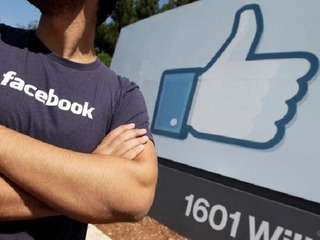
Facebook was riding a wave of good news last week. Its third-quarter numbers came in higher than expected, and shares of its stock went soaring as a result.
But it was always known that the good news, as it has always seemed to happen to Facebook since its IPO in May, would be short lived, as a bunch of shares were set to be unlocked this week, with the potential to kill the stock if there was a massive selloff.
The lockup was originally set to expire on Monday, but was delayed due to the New York Stock Exchange staying closed for two days due to the damage done to New York City by Hurricane Sandy.
Now that the NYSE has finally reopened, those shares were available to be sold. Facebook stock ended down 3.79% Wednesday, trading at $21.11, after 230 million shares held by employees and executives were freed.
It is unknown at this time who, if anyone, actually sold off their stock. Last week, though, In advance of the lockup period ending, six of Facebook’s highest ranking employees filed forms with the Securities and Exchange Commission to convert their restricted stock units into class-B shares.
Facebook VP general counsel Ted Ullyot, COO Sheryl Sandberg, marketing VP David Fischer, VP of engineering Mike Schroepfer, CFO David Ebersman and chief accounting officer David Spillane converted more than than 45 million shares.
Facebook had to be at least somewhat concerned about the possibility of a massive selloff, especially considering what happened the last time shares were unlocked.
Over 271 million shares were freed to be sold by executives and investors in August and, as a result, the stock fell to $20.17, its lowest levels yet at the time, down to nearly 50% of its IPO price.
We know that at least one prominent Facebook investor sold off their stock after the first lockout ended: Peter Thiel, sold off over 20 million shares of Facebook stock at prices between $19.69 and $20.70, netting him roughly $406 million.
Thiel had actually sold off his stock months before, using a rule that allows executives and directors in a company to sell their stock before they have any inside knowledge so that they cannot be accused of insider trading.
While it seems unlikely that the six executives who converted their stock, and who have a high stake in the company, would go ahead and take actions that would effectively sink it, there is one executive that is absolutely not going to be selling.
According to an 8-K filed in September with the SEC, Mark Zuckerberg will not be selling his Facebook shares for at least a year.
Zuckerberg holds roughly 444 million shares of Class B common stock as well as 60 million shares of Class B common stock issuable upon the exercise of an option.
Two Facebook directors, Marc Andreessen and Donald Graham, also announced that would be selling off some personal stock to pay their RSU tax bill, but that they will not be selling off any shares beyond that.
If Facebook can survive its second lockup without dipping too much, that will obviously be a good thing for the social network. They will be able to ride that goodwill until the next lockup period expires on November 14, when another 800 million shares will be freed. And then we can all start worrying about the stock diving yet again.
(Image source: http://finance.fortune.cnn.com/)
























